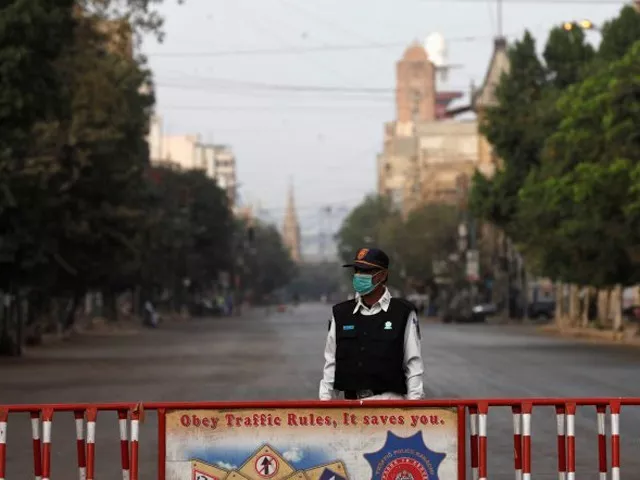Most lawmakers ‘not taken onboard’ in easing Covid-19 curbs
FAFEN’s telephonic survey reveals majority of legislators against softening restrictions
ISLAMABAD: A majority of the provincial legislators have stressed the need to take rigorous yet careful actions to alleviate the socioeconomic fallouts of the Covid-19 pandemic in the country, expressing serious concerns over lack of testing facilities and proposing strict enforcement of lockdown until the threat of infections existed.According to a telephonic survey conducted with 219 members of the 749 of the four provincial assemblies by Free and Fair Election Network (Fafen) on Tuesday, most of them demanded immediate convening of assembly sessions for participatory decision-making on the pandemic.
The survey included legislators from 15 parliamentary parties. The treasury and opposition parties had almost equal representation among the pool of respondents – 51% and 49%, respectively. The interviewees included around a quarter (27%) of women legislators.
A third of 219 legislators (73) expressed their opinion on the lockdown policy. Nearly 62% (45) of them proposed strict enforcement of lockdown until the threat of infections existed while 38% (28) lawmakers were in favour of easing the restrictions.
The provincial governments of Balochistan, Khyber-Pakhtunkhwa, and Sindh may also consider convening the provincial assemblies to take the legislators onboard regarding their strategy to tackle the multifaceted challenges of the pandemic, Fafen stated.
Sindh govt accuses Centre of biased policies
Nearly 59% of the provincial legislators – 21% belonging to the treasury benches and 38% to opposition parties – were of the opinion that the federal government should do more to handle the current health and economic crises arising from the pandemic.
Nearly one third (37%) considered the existing measures taken by the federal government were adequate. Similarly, 65% of the interviewed legislators from Punjab, 55% from Balochistan, 42% K-P, and 41% Sindh proposed their respective provincial governments to take additional measures in response to the pandemic. Nearly four per cent of the legislators chose not to comment on the performance of the federal or provincial governments.
Around half of the interviewed legislators were dissatisfied with their respective district administrations’ response to the pandemic. They complained of the lack of coordination between them and the administration in targeting the deserving people for distribution of ration, cash or other assistance.
A participatory decision-making through provincial assemblies’ sessions might boost the level of legislators’ satisfaction with the federal and provincial governments’ strategies to tackle the pandemic. In this regard, parliament and the Punjab Assembly have already resumed their parliamentary work.
Nearly 64% interviewees from K-P, 60% from Balochistan, 59% Punjab and 32% Sindh supported the demand for convening the sessions of provincial legislatures on Covid-19. Both the opposition (36%) and treasury lawmakers (18%) supported the demand. Those opposing the idea of legislative sessions – which make up around 31% of the interviewed legislators, mainly belonging to treasury parties – cited the threats to members’ health and the futility of the assembly debates as reasons for not supporting the demand. The remaining 16% reserved their opinion on the issue.
The recently convened Punjab Assembly session is following several precautionary measures, including reduced attendance and a ban on public entry to the secretariat to ensure the legislators’ safety. The public and press galleries of the assembly hall were being used to ensure the safe distance among the legislators.
The provincial assemblies of K-P, Sindh, and Punjab were in session during March when the Covid-19 cases started spreading in Pakistan, forcing the prorogation of the sessions. Since then, there has been an embargo on the plenary and committee meetings of the assemblies.
It is pertinent to note that delay in convening the sessions might also lead the provincial assemblies to run the risk of not meeting the constitutional requirement of 100 working days in a parliamentary year. With just three months left of the second parliamentary year, the Balochistan Assembly is yet to complete 56 working days, Punjab Assembly 50 working days, K-P Assembly 48 working days and Sindh Assembly 23 working days.


COMMENTS
Comments are moderated and generally will be posted if they are on-topic and not abusive.
For more information, please see our Comments FAQ